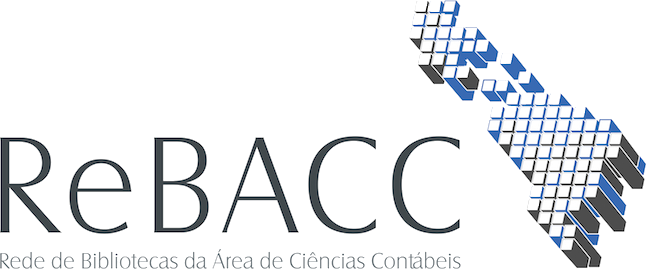Use este identificador para citar ou linkar para este item:
http://rebacc.crcrj.org.br/handle/123456789/2811| Título: | The perception of audit rotation within the independent auditors’ view Percepção do Rodízio de Auditoria sob o olhar dos Auditores Independentes - DOI: http://dx.doi.org/10.16930/2237-7662/rccc.v13n38p9-22 |
| Palavras-chave: | Audit; Audit rotation; Perception of independent auditors; Auditoria; Rodízio de auditoria; Percepção dos auditores independentes. |
| Editora / Evento / Instituição: | Conselho Regional de Contabilidade de Santa Catarina |
| Descrição: | The audit rotation in Brazil was initiated by the Central Bank of Brazil in response to scandals that have occurred and had put at risk the image of audit firms. Subsequently, the rotation was adopted by the Brazilian Securities Commission, encompassing the publicly-traded companies listed on the stock exchange. Turnover has become a controversial subject, as influences, somehow, in the auditors' relationship with their customers as well as the entire market for audit firms, questioning, this way, its effectiveness. Considering these facts, the aim of this study was to verify with the independent auditors' perception under the audit rotation seeking to understand whether they are favorable or not to this procedure. Thus, this study evaluated the perception of 64 independent auditors of 6 different audit firms, through the survey approach with open and closed questions. The mainly results found that: 91% of the respondents are in favor of the audit rotation; 58% of the auditors believe that the rotation could inhibit the accounting scandals; 56% believe that the costs involved in the rotation turnover outweighs the gains; 76% believe that the accumulated knowledge generates addiction to work; 48% believe that auditors approach the client if there is no rotation. On the other hand, 64 % say that there is a loss of efficiency in auditing with the implementation of rotation and that 74 % of audited companies have not joined the CAE with intent to extend the period of 5 to 10 years of the same auditing firm. The findings of this study when compared to the opinion of public accountancy bodies in relation to the rotation, reveal contradictions. While 91 % of the auditors surveyed advocate the rotation should occur by the company rotation or by rotation of the independent auditor, the CFC and IBRACON are not favorable to rotation. Moreover, CVM provides the rotation for audit firms and the Central Bank for professionals with managerial positions. O rodízio de auditoria no Brasil foi criado por iniciativa do Banco Central do Brasil (BACEN) em resposta a escândalos que ocorreram e que colocaram em risco a imagem das firmas de Auditoria. Posteriormente, o rodízio foi adotado pela Comissão de Valores Mobiliários (CVM), englobando as sociedades anônimas de capital aberto, registradas na bolsa de valores. A rotatividade se tornou um assunto polêmico, à medida que influencia, de alguma forma, no relacionamento dos auditores com seus clientes, bem como em todo o mercado das empresas de auditoria, questionando-se, dessa forma, sua efetividade. Considerando tais fatos, o objetivo desta pesquisa foi verificar junto aos auditores independentes sua percepção sob o rodízio de auditoria, buscando compreender se são favoráveis ou não a esse procedimento. Dessa maneira, a pesquisa avaliou a percepção de 64 auditores independentes de 6 empresas de auditoria diferentes, por meio da abordagem survey, com perguntas abertas e fechadas. Constatou-se, principalmente, que: 58% dos auditores acreditam que o rodízio conseguiu inibir os escândalos contábeis; 56% acreditam que os custos envolvidos na rotatividade do rodízio superam os ganhos; 76% acreditam que o conhecimento acumulado gera vício de trabalho; 48% acreditam que os auditores se aproximam do cliente caso não haja o rodízio. Por outro lado, 64% afirmam que há perda de eficácia nos trabalhos de auditoria com a implementação do rodízio e que 74% das empresas auditadas não aderiram ao CAE, com o intuito de prolongar o prazo de 5 para 10 anos de uma mesma empresa de auditoria. Os achados desta pesquisa, quando comparados à opinião dos órgãos públicos de contabilidade em relação ao rodízio, revelam contradição. Enquanto 91% dos auditores pesquisados defendem o rodízio, seja por rotatividade da empresa ou por rotatividade do auditor independente, o CFC e o IBRACON não são favoráveis ao sistema. Por outro lado, a CVM estabelece o rodízio para as firmas de auditoria e o BACEN para os profissionais com cargos gerenciais. |
| Outros identificadores: | http://revista.crcsc.org.br/index.php/CRCSC/article/view/1739 |
| Aparece nas coleções: | Revista Catarinense de Contabilidade (CRCSC) |
Arquivos associados a este item:
Não existem arquivos associados a este item.
Os itens no repositório estão protegidos por copyright, com todos os direitos reservados, salvo quando é indicado o contrário.

